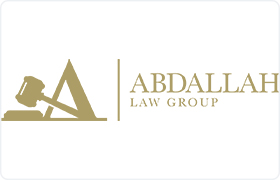Visalia Construction Lawyer, California
Sponsored Law Firm
-
 x
x

Click For More Info:
-
Abdallah Law Group, P.C.
555 Capitol Mall Suite 766 Sacramento, CA 95814» view mapReal Estate Law #1 Sacramento Law Office
Abdallah Law Group is ready to fight for our clients. We provide comprehensive, individualized and affordable legal representation.
800-698-5801
Includes: Construction Contracts, Construction Liens, Housing & Construction Defects
D. Zackary Smith
Construction, Estate Planning, Litigation, Wills & Probate, Landlord-Tenant
Status: In Good Standing *Status is reviewed annually. For latest information visit here
Ronald Paul Jones
Commercial Real Estate, Construction, Real Estate, Corporate
Status: In Good Standing *Status is reviewed annually. For latest information visit here
 Mitchell Abdallah Sacramento, CA
Mitchell Abdallah Sacramento, CA